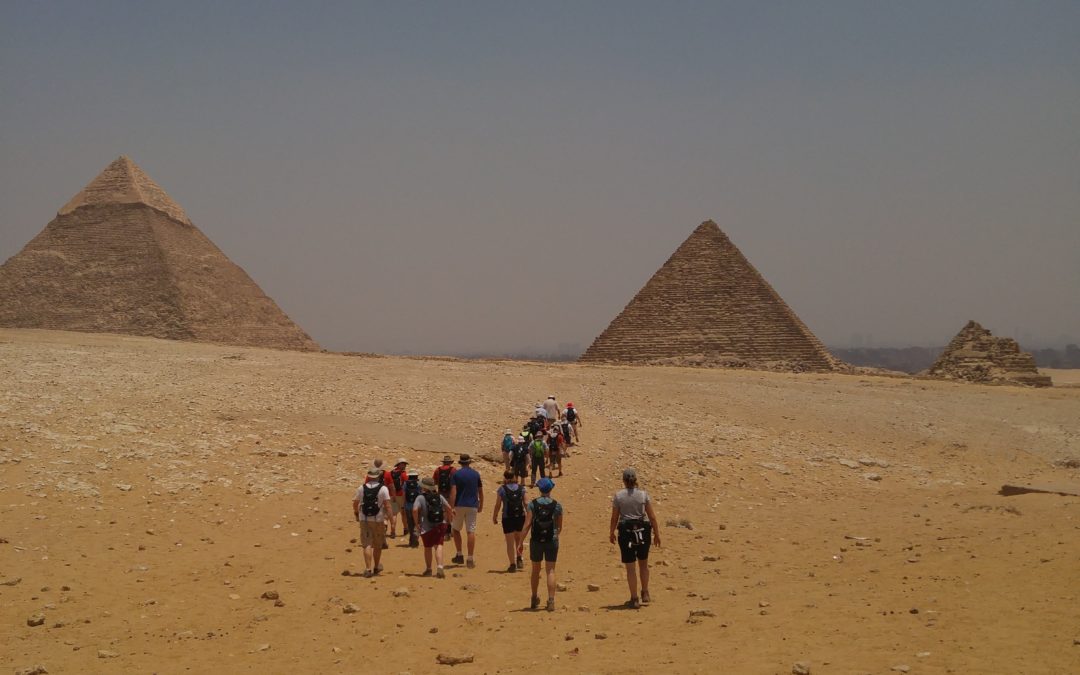I have a couple more reflections on the Psalms to update on the blog, but I want to republish for you the summary points and reflection questions from this past Sunday morning’s message on Exodus 2. Although taking on Exodus is a bit of ambitious project (especially 20 chapters in 10 sermons!), I feel the only way to even attempt to do justice to the texts we are reflecting on is to read them in their entirety (even though I could easily make 30-40 sermons on the first 20 chapters of Exodus!). There is so much context that cannot be overlooked.
Two Sundays ago we began our Series with Exodus 1 and reflected on Israel’s abrupt change in status (from favoured to feared) with the rise of a new king (dynasty) in Egypt. In light of our current visioning process, I see some thematic parallels between Israel’s status in the writing of Exodus and our own today. It was not long ago in Canada that it was just assumed that everyone in this country was Christian (mid-way through the 20th Century, church attendance in Canada was higher, on average, than the United States. At the turn of the 21st century, the numbers had nearly reversed). The church experienced a certain status and respect that it is no longer afforded. This has left (especially mainline) churches reeling in the aftermath of a post-Christian era. Responses to this have varied. Some churches try to ignore our current cultural realities, others dig in their heels and insist that the people will return some day if we just stay the course, and still others change with every new fad that arises within Western Christianity (or even Western culture in general). To the best of my knowledge, none of these tactics have proven effective.
This change in status and cultural climate has naturally created a palpable anxiety for established churches. Questions are bubbling to the surface about our ability to survive if current trends continue. We haven’t quite reached the crisis moment, but the visionaries see it coming. The world in front of us is nothing like the world behind us.
As we return our gaze to the story of Exodus, even the bleak picture painted by its opening chapter has a significant silver lining. In Israel’s case, despite their harsh treatment and change in status in Egypt, God was still fulfilling his promise to Abraham to make them into a great nation. Though when we’re right in the thick of it we do not always see the bigger picture of God’s activity, it helps to have that perspective when viewing our own circumstances. God is in control. God has a plan.
The plans begin to fold in a seemingly unlikely scenario where a Levite couple chooses to hide their baby boy (not their firstborn either) from Pharaoh’s edict to throw every Hebrew baby boy into the Nile. Outside the context of Exodus 1 and 2, this biographical account of the life of Moses makes little to no sense in the narrative, and so we are forced to pay attention to what exactly is going on here. There are a lot of details in the text that suggest there is something special about this child: from the parallel language between the creation account “saw that it was good” and Moses’ parents assessment of him “saw that he was a fine child” to the fact that the daughter of Pharaoh finds him among the reeds of the Nile as with the well-known story of the Egyptian goddess Isis hiding her son Horus (god of Pharaohs) in the reeds of the Nile from her brother-in-law Set, and the use of the word “ark” to describe Moses’ vessel that links him with Noah.
The text suggests that Moses, though he grew up in privilege in the palace of Pharaoh, had an understanding of his heritage and a compassion for his own people that leads him to murder an Egyptian slave-driver in defense of one of his fellow Israelites. This story shows us something of Moses’ character and his sense of justice, a key character trait that God continues to develop in selecting Moses to lead his people out of Egypt. We see it again when he defends the daughters of Reuel (Jethro) at the well in Midian. Though it appears as though Moses has built a new life for himself in Midian, and has left his Egyptian days behind him, the name he gives his firstborn son, Gershom, is indicative of Moses’ sense of self. Literally, the name means (according to the author of Exodus) “I am a stranger there” (the NIV footnotes take a little too much liberty in their translation I think). This says something of Moses feeling like he doesn’t really have a home. A Hebrew raised by Egyptians who is a criminal to his adoptive family, disrespected and despised by his blood people (Israel), and now living amongst a people who are similar to him, but are still not really his people. An identity, I think, we can relate to as “aliens and strangers” here on earth. The feeling that we are not really at home here. How much more so, the people of Israel back in Egypt.
The last 3 verses of Exodus 2 are some of the most powerful verses in the Old Testament:
During that long period [while Moses was in Midian], the king of Egypt died. The Israelites groaned in their slavery and cried out, and their cry for help because of their slavery went up to God. God heard their groaning and he remembered his covenant with Abraham, with Isaac and with Jacob. So God looked on the Israelites and was concerned about them. (Exod. 2:23-25, NIV, 2011).
For Israel, there is no returning to their former glory in Egypt. That ship sailed a long time ago. They have indeed hit their lowest point as a nation and they are now crying out. In desperation they are pleading for help, to be saved from this oppressive environment. And someone hears. But not just anyone. The God of their ancestors. The God of Abraham, of Isaac, and of Jacob. He “remembers” his covenant with Israel and will now set into motion the second part of his promise to Abraham – to give them a land of their own. These verses show the deep compassion of God, and remind us of his faithfulness in the face of seemingly dire circumstances.
When the text says that God “remembers” his covenant, it does not mean that he has somehow forgotten about Israel for 400 years. The word means to call to active memory (the difference between, say, between remembering to lock the door and Remembrance Day). Though, Israel may indeed have felt like God had forgotten them after 400 years. But God never forgets his people. He may allow us to go through times of difficulty and trial. But not to punish us or because he is indifferent towards us. No, God always uses difficulties to shape us. He used them to shape Moses. He used them to shape Israel. Our difficulties should not drive us to reject God, but rather to cry out to him, because he hears; because he remembers; because he cares. God responds when his people cry out.
In our current context and cultural climate, are we ‘crying out’ to God? Or are our prayers polite requests for God to restore the Church to her former glory under Christendom? Are we even praying at all … or have we not yet reached that point? When faced with challenges like the ones before us in our day, we can elect for human solutions that may bring a measure of success for the short term but will have no lasting impact. Or we can intentionally decide to cry out to God. God hears. God answers. But be prepared, the source of God’s answer may not be what we expected. That’s certainly true in the case of Moses and so many others in the life and history of Israel. And this doesn’t just apply in our collective challenges as a community, but our personal struggles as well. So go ahead: cry out. Seek the face of the one who loves us more than we could ever imagine. And wait to see what he does.
Summary Points (from the September 16th a.m. message):
- It’s not always obvious when or where God is at work
- God uses difficulties to develop our character
- God responds to his people when they cry out
Questions for Reflection:
- How are you looking for God’s activity around you?
- What difficulties are you (we) going through, or have you (we) recently gone through that God is using to shape you (us)?
- What is your prayer life like?


Recent Comments